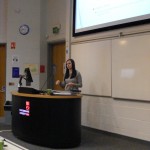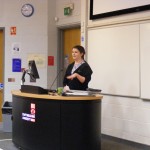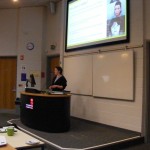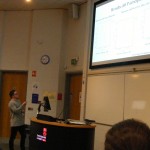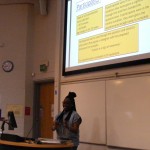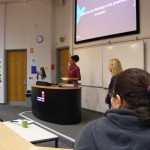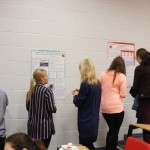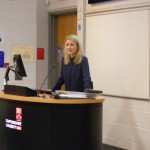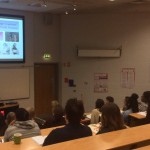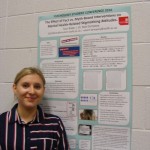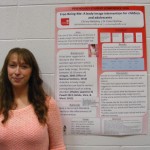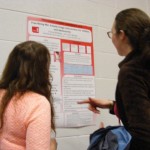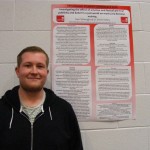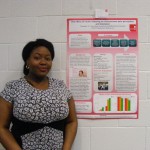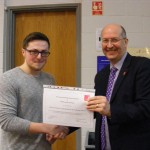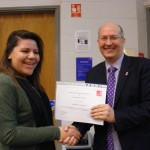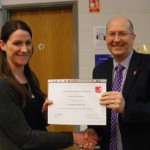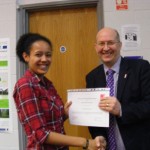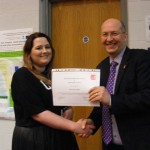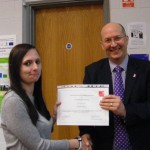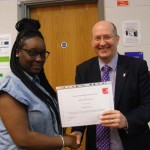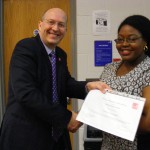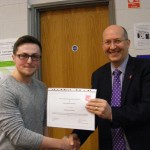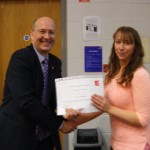Hi there, I am a current second year Psychology student at Staffordshire University. I began my Undergraduate degree in the year 2012, however I encountered a series of unfortunate distractions along the way. With the help from my personal tutor, the Student Enabling Centre and the Student’s Union I was able to return to my studies as a full-time student. The purpose of this blog is just a gentle reminder and encouragement to other students to ‘speak out’ if you are experiencing difficulties.
 The Access to Higher Education course offered at Stoke-on-Trent College’s Cauldon campus was my gateway into further education, I have no background of A level qualifications aside from a few certificates from a local community college. Prior to starting my first year at university, I endured a history of depression, exclusion and tasted the bitterness of emotional and psychological abuse and also domestic violence. University life for me would be the ultimate fresh start and a potential future ambition for my two children. It was almost too good to be true, I was accepted onto a course which I desired, I felt optimistic and this gave me a great sense of achievement.
The Access to Higher Education course offered at Stoke-on-Trent College’s Cauldon campus was my gateway into further education, I have no background of A level qualifications aside from a few certificates from a local community college. Prior to starting my first year at university, I endured a history of depression, exclusion and tasted the bitterness of emotional and psychological abuse and also domestic violence. University life for me would be the ultimate fresh start and a potential future ambition for my two children. It was almost too good to be true, I was accepted onto a course which I desired, I felt optimistic and this gave me a great sense of achievement.
University’s requirements are tremendously demanding, especially when you are solely responsible for two young dependants and struggling to fight the dreaded symptoms of depression. My moods would sway back and forth like the waves of the ocean. At times I felt physically numb and just rolling out of bed was progress. I sought help, desperate to be fully engaged in my studies.
Psychology I find extremely interesting, in saying so during the first semester of my Foundation Year, was like opening a can of unwanted worms. So many locked away emotions immersed through exploring modules during lectures and seminars. To the point of my unexpected emotional outburst during one of the seminars.
From that point I began to open up to my Personal Tutor. I was an emotional wreck, but the option to trust my tutor and present myself as a diagnosed depressed single mother gave me an outlet and an opportunity. I was able to entrust my tutor with my personal circumstances by simply speaking out. “I feel as if I’m sinking”, “I’m drowning”, “I can’t focus on my assignments and I am struggling to fight these daunting emotions of depression”. After having a short discussion with my personal tutor from the Psychology Department, I then approached the Student Enabling Centre as advised.

Student Enabling Centre
It was there that I met with one of the Student Specialist Advisors, Elsa. The first time I met with Elsa was surprisingly positive. My moods of depression caused me to anticipate little or irrelevant help from the Student Enabling Centre or indeed from anyone. I was greeted with a very warm and sensitive embrace, I felt welcomed and encouraged to fully open up to Elsa. Elsa’s approach was impressively sensitive towards me. I was given an opportunity to expand on my personal circumstances and also talk about a painful past. Elsa was eagerly supportive and proved her capabilities as a Student Specialist Advisor. Elsa expressed her concerns and appropriately arranged a Learning Support Agreement in support of my academic learning. In support of my ill health Elsa arranged for me to start counselling sessions located at the Enabling Centre. This was exactly what I needed, in particular a fixed support agreement in which allowed me a separate room and extra time during exams, also a Dictaphone to record lectures. This was particularly useful as my depression resulted in my constant fluctuation of fatigue and dizzy spells (being one side effect of my antidepressants). Extra time and short breaks during exams gave me the opportunity to alleviate my anxieties related to exam assessments and also gave me time to refocus my thoughts and to stretch my limbs. Without this extra support I would have the pressure of constant worry, I would feel defeated and overwhelmed.

An Advisor at Staffordshire University’s Student Enabling Centre
In addition I was given a free laptop and a Personal Mental Health Mentor. I was so grateful for the laptop, as I could not afford one for myself, but more so that I was then able to access and continue to my learning at home. This meant that I did not have to travel to the University’s Library and have the trouble of finding a babysitter to care for my kids. The comfort of studying at home also ensured the comfort and safety of my young children. Also I was able to type notes during lectures and this improved my typing skills. As a student this made me feel more engaged with my studies. In addition to working with the Enabling Centre, I had repeated meetings with a Student Financial Advisor at the Student’s Union. My depression made me vulnerable, as a result I fell into financial debt and was seeking help via food vouchers and assistance with emergency energy tokens. I approached the Student’s Union and met with Mark and Martin, Student Financial Advisors. I was unaware of the financial help that the University could offer but the advisors informed me about the options which best suited my situation. I was advised to apply for a Financial Hardship Grant from the University and to my pleasant surprise after submitting the relevant evidence, my application was approved. This particular financial aid was so helpful and I had the freedom of not paying it back. This lifted my hopes as I had exhausted my emergency aid from the local council.

Some examples of the Learning Enabling technology available at the University
As mentioned I was assigned a Personal Mental Health Mentor, I was grateful that it was a female and also a qualified Mental Health Professional. I was offered the options of which date and time my mentor and I should meet. We met weekly and communicated quite often, via email, text and phone calls. This support was tremendous, Noreen, my mentor, was relaxed and non-judgemental, and I looked forward to our weekly meetings. This support made me feel more engaged in my studies and also I felt important, as my depression caused me to feel defeated, isolated and wasteful. I particularly struggled with my organisation and motivation. Noreen was able to guide me in constructing a study time table and an academic journal. This was particularly useful as I was challenged to set specific targets in working towards my assignments. I felt truly supported as Noreen was able to assist me in prioritizing my academic work , but also we spent time sharing thoughts and having light discussions on how I felt on the day, in terms of my mental health, while having a hot drink. This was excellent as I did not feel pressured or restricted to explain or not explain my fatigued expressions. I felt a sense of security in that Noreen knew and understood my circumstances.
An impressive combination of a Learning Support Agreement, counselling sessions, a free laptop, a voice recorder, an assigned Mental Health Mentor, financial support and advice, altogether aided my progression in my degree studies. I felt eager to continue with my studies and accessed all the available support from the University. But first all I had to do was to speak out. I have no regrets and I feel grateful to have accessed the available help. I would like to encourage anyone who can relate or who is facing a challenging experience, in which is negatively affecting your studies or learning experience, to please approach your Personal Tutor, your Student Advisor or Course Leader. The sooner the better.



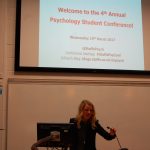


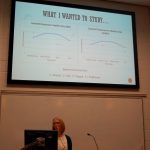



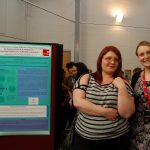
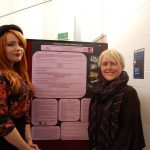
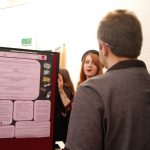
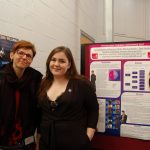
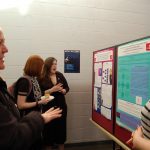
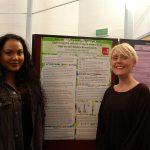
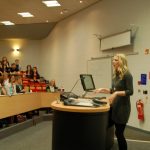
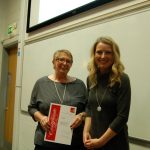
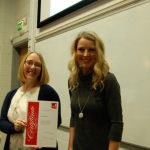
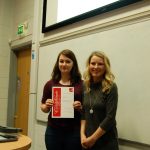
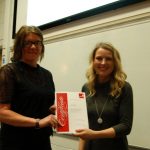
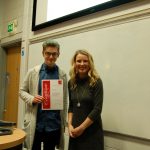
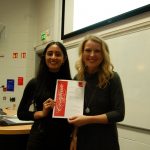
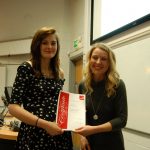
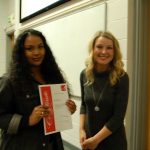
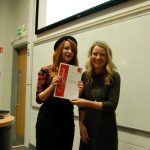
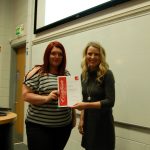
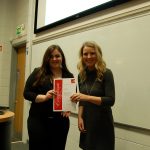
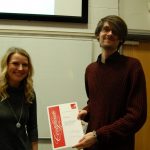
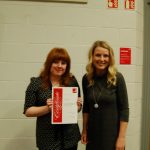

 The
The 
